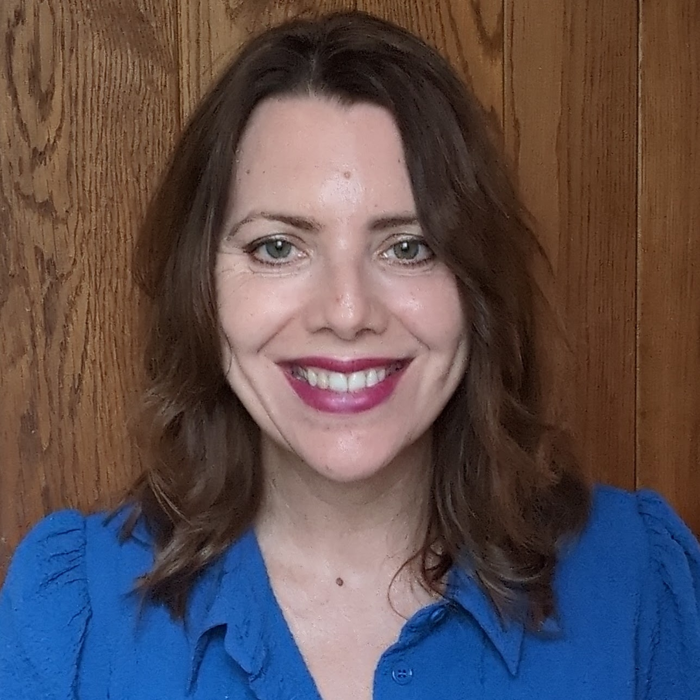Dosimetry Measurement of Vocal Demands in Contemporary Musical Theatre
Thursday 31st October 2024, 5:00 PM - 7:00 PM (London Time)
Singers are highly skilled vocal athletes who master specialized vocal requirements when cast to perform in a musical theatre production. Their participation is physically, vocally, and emotionally challenging. Each musical role requires specific sonorities or styles of vocalism that involve a high level of vocal coordination while performing the physical, emotional, and cognitive demands of singing and speaking while acting and dancing.
Due to the vocal demands of a particular musical score, specific aspects of a singer's vocal dose increase during rehearsals and performances. The singer’s focus on required types of production and desired vocal timbre, especially when the musical tessitura focuses on a belting range with repetition of a small frequency range, can tax the vocal mechanism of soloists and ensemble cast members and lead to vocal trauma, especially when performing the productions eight times per week on Broadway. Over time, this vocal dose can contribute to changes in the consistency of voice production and the health of the vocal fold tissue.
One way to identify and monitor the impact of speaking or singing dose is through vocal dosimetry. It uses an accelerometer embedded in the throat sensor to record the speed, amplitude, and duration of vibrations to measure the mechanical stress on the vocal folds. The dosimeter records neck vibrations at a sample rate of 20 samples per second and records three types of vocal doses:
- Time dose
- Total cycles of vibration dose
- Total distance dose and sound pressure level
The time dose includes only those instances when the vocal folds are vibrating, and the cycle dose counts the number of glottal pulses the dosimeter detected. The sound pressure level (SPL) describes the amplitude of vibration of the vocal folds in decibels (dB). The dosimeter calculates the distance dose in meters based on the total cycle of vibration dose and SPL. It is the most complete measure of vocal dose as it accounts for the duration of phonation on the same fundamental frequency at various intensity levels.
This presentation will describe research conducted in collaboration with Drs. Ana Flavia Zuim and Ingo Titzi focused on identifying vocal dose and singers. Increasing student and professional singer’s awareness of vocal dose may lead to a better understanding of vocal differences between performers and recognition of ways to reduce vocal load and preserve the consistency of performance and longevity of voice careers.
🏷️ Price £30 (UK VAT inclusive)
🎥 Recording automatically sent to all who book (even if you cannot attend live)
▶️ Rewatch as many times as you like
📜 Certificate of attendance available
Celia Stewart
Celia Stewart, Ph.D. CCC-SLP, an Associate Professor at New York University, teaches Voice Disorders, Advanced Voice Disorders, Motor Speech Disorders, and Interdisciplinary Habilitation of Speaking Voice/Vocal Performance: Synergistic Remediation Effect.

Attend this course for as little as £22 as part of the Voice Professional Training CPD Award Scheme.
Learn MoreSorry, this is an archived short course...
We have plenty of upcoming short courses coming soon. See details of some of them below or look at the full list of short courses.

Tuesday 13th January 2026
5:00 PM - 6:30 PM
Tuesday 20th January 2026
5:00 PM - 6:30 PM
Tuesday 27th January 2026
5:00 PM - 6:30 PM
Tuesday 3rd February 2026
5:00 PM - 6:30 PM
Tuesday 10th February 2026
5:00 PM - 6:30 PM
(London Time)
Introduction to Postgraduate Academic Skills - Join Live!

Debbie Winter
Are you ready to elevate your academic journey? Hosted by our very own Debbie Winter, join our comprehensive Introduction to Academic Skills course, designed to equip you with essential tools and strategies for success in higher education. Perfect for bridging the gap between undergraduate and postgraduate study, this course offers a pathway to our full MA for students without an existing degree. We offer both live, interactive sessions and standalone, pre-recorded content.

Thursday 15th January 2026
5:00 PM - 7:00 PM
Thursday 22nd January 2026
5:00 PM - 7:00 PM
Thursday 29th January 2026
5:00 PM - 7:00 PM
Thursday 5th February 2026
5:00 PM - 7:00 PM
Thursday 12th February 2026
5:00 PM - 7:00 PM
(London Time)
Trauma-Sensitive Voice Professional Certificate with Dr Elisa Monti

Dr Elisa Monti
Updated for 2026, this five-part certificate course is designed to help participants learn the theory and practice of trauma-sensitive approaches. The concepts and activities included are tailored to meet the needs of voice specialists who want to acquire more specific tools to navigate the space with their students and colleagues.

Monday 9th February 2026
5:00 PM - 7:00 PM
(London Time)
Certificate in Applied Voice Pedagogy with Adam Roberts

Adam Roberts
Spring Immersive - live and interactive learning! This 12-week online programme is designed for voice professionals committed to deepening applied voice pedagogy skills and advancing professional practice. The course offers a rich environment to reflect on your teaching philosophy and develop applied pedagogical techniques. It is ideal for voice teachers, coaches, therapists, and performers seeking to bridge foundational knowledge with practical, student-centered applications.
